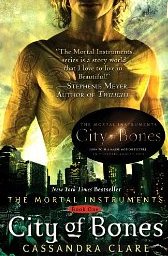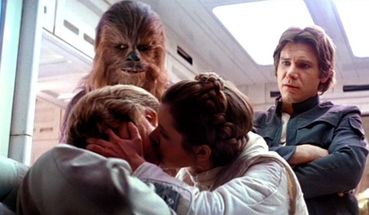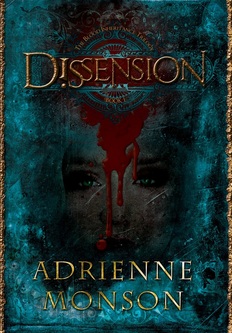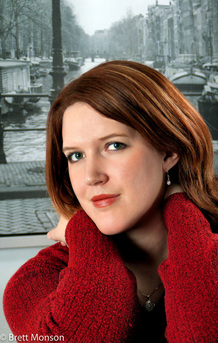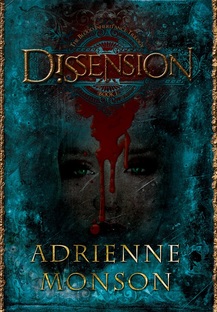B-
A book I’ve had vague intentions of reading for a while, a movie release encroaching, you guys know the drill.
The Upside:
Most of the classic tropes you expect of 2000s YA low fantasy, City of Bones executes exceptionally well. The magic of the world is beautifully integrated and described, the good vs. evil stakes appropriately, earth-shatteringly high. You’ve got your heart-wrenching triangular romance, both of the boys surprisingly deep and alive given their rigid badboy/safeboy archetypes, and also plenty of fun, easy, unforced jokes and banter.
The Downside:
Six words: The beginning, the ending, and Clary.
I know, that sounds like the whole book. Keep in mind there’s still very enjoyable magic, banter, and lovable boys stuffed into the spaces in between, but those are three pretty serious problems.
The first chapter actually made me put the book down the first time I tried to read it. In it, Clary sees what she thinks is a murder, follows the murderers into an isolated room alone and unarmed, helpfully reminds them that murder is illegal, and threatens to call the cops. With a straight face.
Seriously. I couldn’t stop laughing.
Clary doesn’t wise up much after that either. She stays the bland, whiney, generic sort of character one expects to find bearing the writer’s name (Sorry, Ms. Clare, I know George Lucas did it first, but it had to be mentioned). She spends most of the book gaping in passive awe at new bits of magic, describing the more interesting characters’ deeds from the sidelines, and being manipulated through what little action she does have to participate in.
Her treatment of Simon (the safeboy corner of the triangle) is reprehensible, much worse than the usual painful but relatable “I don’t know how I feel!” or “we’re best friends, why do you look hurt when I talk about my love life?” She’s not just confused about their relationship; she routinely forgets about it entirely. This habit does set up one of the most intensely heartstring-yanking scenes when Simon himself points it out, but she doesn’t improve at all because of it.
The end isn’t laughable, but it does go on for chapter after chapter of different combinations of character confrontations and monologues about complicated ancestral drama, long enough to wear out the patience that the fast-moving middle saves up. The previous generation’s story eclipses the current one, with some of its fine points explained and analyzed to excess while present day details (like how everyone who dislikes Clary gets a total personality transplant in the last chapter) are given only token mentions. And still, Clary does next to nothing of consequence.
Oh, and the resolution of the love triangle…
****Spoiler Alert, scroll down if you dare****
